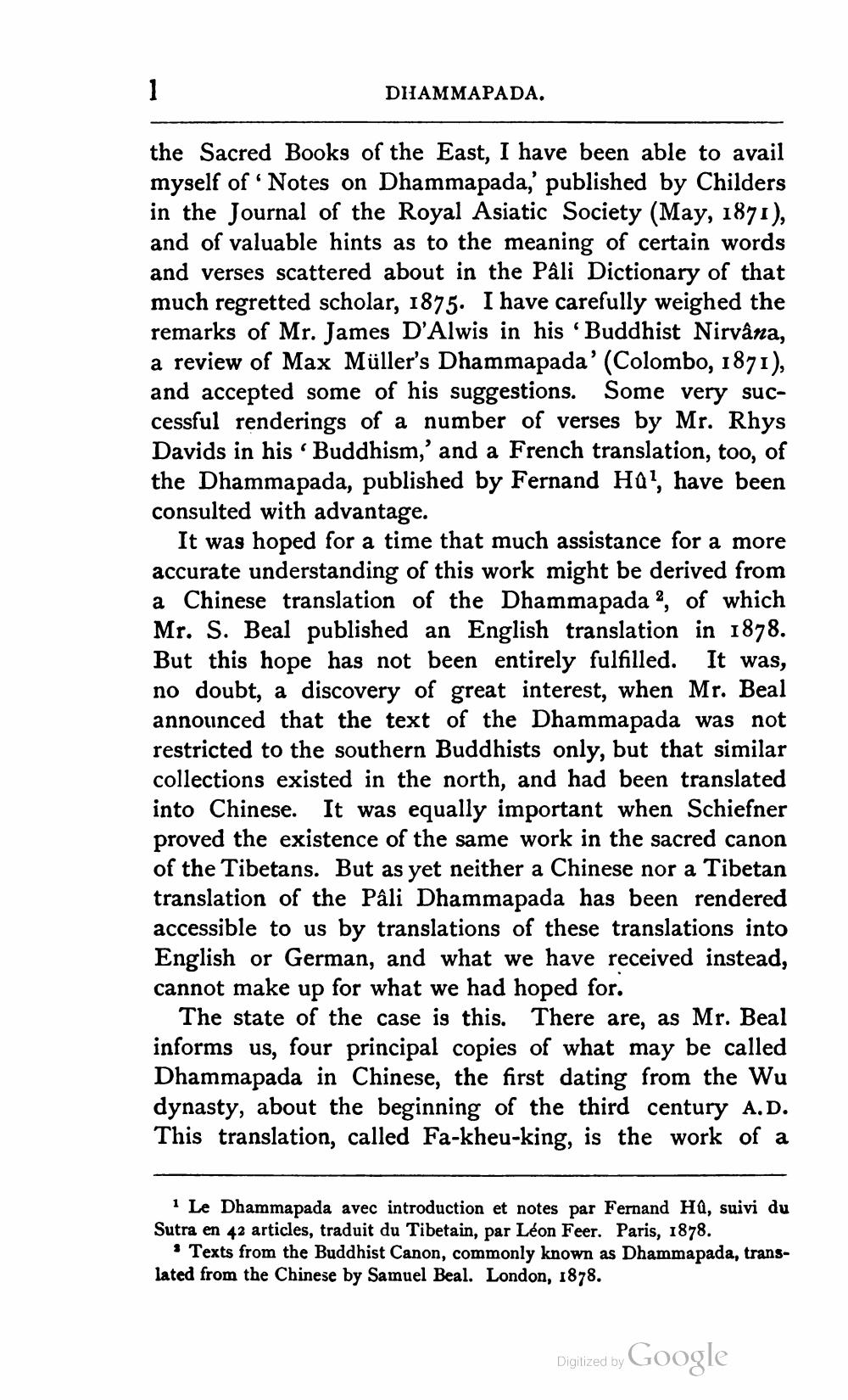________________
DHAMMAPADA.
the Sacred Books of the East, I have been able to avail myself of Notes on Dhammapada, published by Childers in the Journal of the Royal Asiatic Society (May, 1871), and of valuable hints as to the meaning of certain words and verses scattered about in the Pali Dictionary of that much regretted scholar, 1875. I have carefully weighed the remarks of Mr. James D'Alwis in his 'Buddhist Nirvana, a review of Max Müller's Dhammapada' (Colombo, 1871), and accepted some of his suggestions. Some very successful renderings of a number of verses by Mr. Rhys Davids in his ‘Buddhism,' and a French translation, too, of the Dhammapada, published by Fernand Ha!, have been consulted with advantage.
It was hoped for a time that much assistance for a more accurate understanding of this work might be derived from a Chinese translation of the Dhammapada?, of which Mr. S. Beal published an English translation in 1878. But this hope has not been entirely fulfilled. It was, no doubt, a discovery of great interest, when Mr. Beal announced that the text of the Dhammapada was not restricted to the southern Buddhists only, but that similar collections existed in the north, and had been translated into Chinese. It was equally important when Schiefner proved the existence of the same work in the sacred canon of the Tibetans. But as yet neither a Chinese nor a Tibetan translation of the Pâli Dhammapada has been rendered accessible to us by translations of these translations into English or German, and what we have received instead, cannot make up for what we had hoped for.
The state of the case is this. There are, as Mr. Beal informs us, four principal copies of what may be called Dhammapada in Chinese, the first dating from the Wu dynasty, about the beginning of the third century A.D. This translation, called Fa-kheu-king, is the work of a
1 Le Dhammapada avec introduction et notes par Fernand Hd, suivi du Sutra en 42 articles, traduit du Tibetain, par Léon Feer. Paris, 1878.
• Texts from the Buddhist Canon, commonly known as Dhammapada, translated from the Chinese by Samuel Beal. London, 1878.
Digitized by Google




